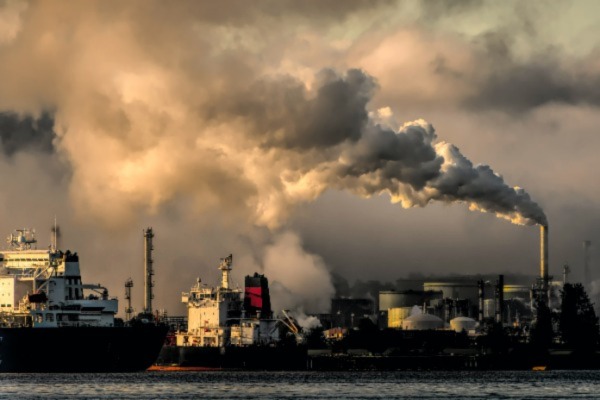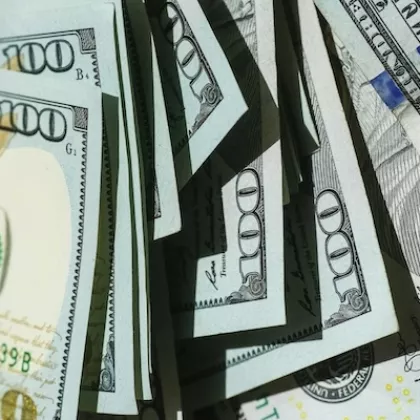Tragedy of the horizon

Tragedy of the horizon
August 24, 2022 | By Sevin Yeltekin
In this ESG series, we have heard from Simon alumnus Dave Khani on the future of clean energy in the U.S. and Simon Adjunct Professor Martin Jarzebowski on the future of responsible investing. So far, we have focused primarily on the rise of ESG investing from an American perspective.
To gain a fresh perspective from across the pond, we sat down with Karl Schmedders, a finance expert whose research and teaching focus on the economics of climate change. In addition to serving as a professor of finance at IMD Business School in Lausanne, Switzerland, and a visiting professor of executive MBA education at Northwestern University’s Kellogg School of Management, Karl also lectures for Simon Business School’s Switzerland-based EMBA program. He writes frequently about the challenges of transitioning to a greener economy and works with companies to navigate a sustainable path forward.
Below, he delves into the complexity of the effort to decarbonize the global economy.
Dean Yeltekin: What motivated you to begin teaching and researching ESG?
Schmedders: At IMD Lausanne, we focus heavily on our executive education programs for individuals and companies. Through these programs, we have a front-row seat to how companies are dealing with widespread industry problems. I had never studied or researched ESG or climate change finance, but by the fall of 2019, the demand for education on these topics was so high that I was asked to pitch in. When COVID-19 hit, I had a reduction in my workload that allowed me to give myself a crash course on ESG. I read all the popular books, newspaper articles, and academic articles I could get my hands on. Then, with sweaty palms and high blood pressure, I began teaching what I had learned.
Dean Yeltekin: What were some of your key takeaways from that initial exploration?
Schmedders: I learned that climate change and ESG mean vastly different things in different industries. I learned that there is no one-size-fits-all solution to any of the problems we’re facing globally, which helps explain why we’re in so much trouble. And I also observed that it's difficult to have a productive discussion on ESG issues like climate change with so many ethical, moral, religious, and political opinions muddying the waters. People get very emotional and very accusatory when they talk about this issue. My goal from the beginning has been to examine these issues from an economic perspective. That’s how I teach. Regardless of a student’s religion, politics, or ethical standards, I will encourage them to look at the economics.
Dean Yeltekin: When teaching a topic as broad and complex as ESG, where do you begin?
Schmedders: I lay a foundation for a meaningful discussion by introducing students to the finance risks and incentives surrounding ESG. When we focus purely on the economics of decision-making, it becomes clear why people and companies do what they do. We are polluting the earth because there are financial incentives to pollute the earth.
An example I like to use is global cement production. Heating limestone produces vast amounts of CO2, but demand for cement continues to grow, especially in rapidly industrializing nations. Between 2011 and 2013, China produced more cement (6.6 gigatons) than the U.S. did in the entire 20th century (4.5 gigatons). It is highly incentivized to do so by the economic benefit this production provides. The same can be said for any activity that creates emissions. The problem is that global markets have no way of imposing a price on negative externalities. In Switzerland, for example, we pay for road and rail infrastructure, but we don’t foot the bill for the consequences of melting glaciers or mudslides caused by extreme climate events. What we need to do is create incentives to make different choices.
Dean Yeltekin: What are some of the most effective tools in place to assign a price to carbon?
Schmedders: One way to correct market failure is to build the cost of consequences into the goods in question—for example, we could tax the price for aviation fuel kerosene for every flight. It’s hard to imagine the global community agreeing on this approach. A more realistic approach is to introduce carbon taxes that assign a price to pollution and quotes that aim to limit the quantity of production. A prime example is the European Union’s cap and trade system, which assigns a greenhouse gas allowance to companies and allows them to buy and sell permits. Unfortunately, companies are finding their way around this by moving high-polluting activities to countries outside the EU and importing products back into the bloc. To address this widespread problem, the EU is planning to introduce the Carbon Border Adjustment Mechanism (CBAM), where importers to the EU buy carbon certificates corresponding to the carbon price that would have been paid if the goods that been produced within the bloc. If passed, the CBAM could be a game changer in increasing the scope and size of carbon taxes.
Dean Yeltekin: In your writing, you often highlight the tension between environmental and social considerations—the ‘E’ and the ‘S’ of ESG. How is this tension playing out in real time?
Schmedders: During the transition to a low-carbon economy, companies are often focused on stranded assets, or investments that will no longer be able to earn an economic return before the end of their economic life. But we don’t talk as much about stranded workers and stranded communities. At COP26 in Glasgow, the Asian Development Bank launched its new Energy Transition Mechanism to finance the early retirement of existing coal-fired plants and replace them with clean power capacity. There was very little in that announcement that references the workers in the coal plants and supply chains who would need retraining or retirement benefits. A just transition means that the benefits of the energy transition are shared widely and that those who stand to lose economically are supported. We see this closer to home as well. In 2018, French President Macron decided to increase taxes on diesel and gasoline, a laudable environmental move that ignored the economic impact on those who needed to use their vehicles to make a living. The Yellow Jackets protest movement caused him to back down.
Dean Yeltekin: How do you distribute the costs of transitioning to a low-carbon economy more fairly?
Schmedders: In the case of Macron and the Yellow Jackets movement, Macron could have introduced a tax reduction on commuting for those who are poor and live outside Paris, incentivizing wealthier people within Paris to bear a greater burden of the tax. In Switzerland, we have a carbon tax on heating oil and gas. When you heat your home this way, you pay 120 Swiss francs per ton of carbon, the second highest carbon price in the world. The government takes that income and invests it in R&D for greener tech, while also returning at least a third to citizens in the form of a health insurance rebate. This is a good way to soften the blow, but it still disproportionately affects lower-income residents who live in older, energy-inefficient buildings. This is an example of a situation in which the government would do well to shift the burden of the tax away from those who are hardest hit.
On a global scale, there are countless opportunities for companies in more developed countries to offset their carbon emissions where it matters most. For example, we know that the most effective place to offset carbon is in large tropical forests. So there are banks in countries like Switzerland and Belgium that offset their emissions by planting trees in Uruguay or Malaysia. It’s less costly for them to undertake these activities in developing countries, creating a natural incentive for wealthier countries and companies to help poorer counterparts take actions that they could not otherwise afford to take.
Dean Yeltekin: How much hope do you have for progress in the fight against climate change?
Schmedders: The world’s biggest polluters are China, India, the U.S., and Indonesia. I have some hope for the U.S., but much less for the other three. We can look at the problem through the lens of game theory. No one wants to put themselves at a relative disadvantage, but wealthier countries have to step up more to help the developing world along. There are clear solutions, like the offsetting system I mentioned, but there is not nearly enough progress being made. Ultimately, power is in the hands of heads of government with a term of four or five years. They're not willing to make hard enough choices to risk reelection. Similarly, a CEO has two or three quarters to prove themselves. If they underperform relative to their peers because they have made massive green investments, they risk being fired. In the end, climate change is the ultimate “tragedy of the horizon.”

Sevin Yeltekin
Dean, Simon Business School

Karl Schmedders is a Professor of Finance at IMD Lausanne.
Follow the Dean’s Corner blog for more expert commentary on timely topics in business, economics, policy, and management education. To view other blogs in this series, visit the Dean's Corner Main Page.











